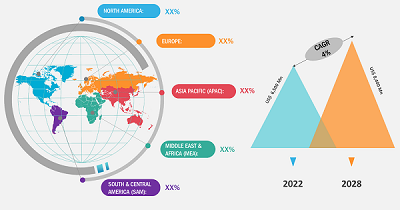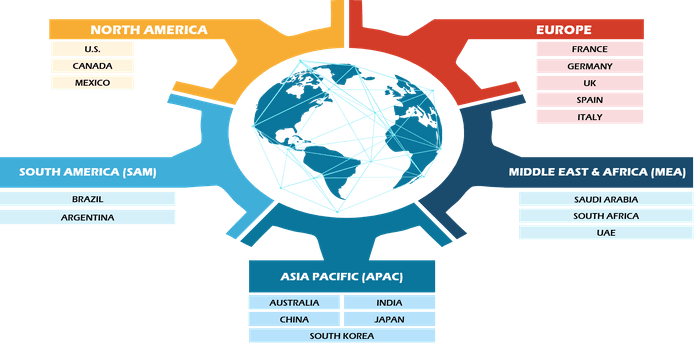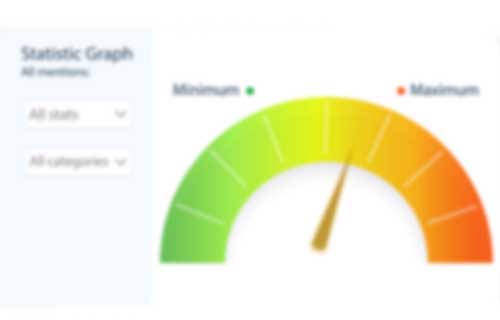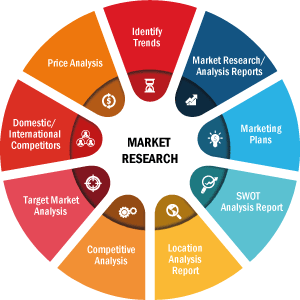The wax market is expected to grow from US$ 6,500 million in 2022 to US$ 8,400 million by 2028; it is estimated to record a CAGR of 4% during 2022–2028.
Wax is a class of organic compounds comprising long alkyl chains. Waxes are lipophilic, malleable solids near ambient temperatures. Higher alkanes and lipids with melting points above 40°C come under the category of wax. Waxes are insoluble in water but soluble in organic and nonpolar solvents. They are extracted from plants and animals and occur in petroleum. Natural wax may contain unsaturated bonds while synthetic wax constitutes homogenous series of long-chain aliphatic hydrocarbons that do not have any functional group.
MARKET DYNAMICS
The wax market has witnessed significant growth with the rise in demand from the cosmetics and packaging industries. Moreover, growing health concerns and awareness regarding green products are creating lucrative opportunities for companies in the wax market. Mineral wax is increasingly being used in adhesives formulations, which is another prominent application of wax. The increasing preference for green cosmetics is likely to bring new trends into the wax market in the coming years.
MARKET SCOPE
The "Global Wax Market Analysis to 2028" is a specialized and in-depth study with a special focus on market trend analysis. The report aims to provide an overview of the wax market with detailed market segmentation based on type and application. The report provides key statistics on the market based on the financial performances of leading players in the wax market. It also explains key trends and opportunities in the market.
Strategic Insights
MARKET SEGMENTATION
The wax market is segmented on the basis of type and application. Based on type, the market is segmented as mineral, synthetic, and natural. In terms of application, the market is segregated into packaging, candles, plastics and rubber, cosmetics and personal care, adhesives, and others.

The report provides a detailed overview of the wax market, including both qualitative and quantitative information. It provides an overview and forecast of the market based on various segments. It also provides market size and forecast estimates from the year 2020 to 2028 with respect to five major regions North America, Europe, Asia Pacific (APAC), the Middle East & Africa (MEA), and South America. The market in each region is further analyzed on the basis of respective countries and segments. The report covers the analysis and forecast of 18 countries, and it also states current trends and opportunities prevailing in each region.
Asia Pacific accounts for a prominent share of the wax market. The dominance of the market in this region is majorly credited to the presence of a large number of wax manufacturers and consumers. The following figure depicts the revenue growth trend in the wax market:

Source: The Insight Partners Analysis
The report analyzes factors affecting the wax market from both the demand and supply sides. It evaluates the factors governing the market growth, i.e., drivers, restraints, opportunities, and future trends. The report also provides an exhaustive Porter's Five Forces analysis of the wax market.
IMPACT OF COVID-19 PANDEMIC
The chemicals & materials and cosmetics industries, among others, faced unprecedented challenges during the COVID-19 pandemic due to disruptions in the global supply chains that adversely affected manufacturing, delivery schedules, and sales. The wax markets experienced decelerated growth due to a decline in demand from several industries, as many production sites were either partially or fully closed amid the fight against SARS-CoV-2. Moreover, a huge gap in supply and demand led to fluctuations in the prices of raw materials required for wax production. However, since 2021, the cosmetics and packaging industry has been reviving significantly. This is likely to propel the demand for wax in the coming years, thereby bolstering the market growth during the forecast period.
Shejal Shejal will walk you through a 15-minute call to present the report’s content and answer all queries if you have any. 

Have a question?

 Speak to Analyst
Speak to Analyst
The report presents key developments in the wax market, including organic and inorganic growth strategies adopted by the market players. Various companies in the market focus on organic growth strategies such as product launches, product approvals, and patents and events. On the other hand, inorganic growth strategies by the companies include acquisitions, partnerships, and collaborations. These activities have paved the way for the expansion of their businesses and customer bases. The list of a few companies engaged in the wax market is provided below.
- Sinopec Catalyst CO., LTD.
- Exxon Mobil Corporation
- HollyFrontier Specialty Products
- NIPPON SEIRO CO., LTD.
- Baker Hughes
- Sasol
- Evonik
- BASF SE
- Dow
- MITSUI CHEMICALS AMERICA, INC.
The report includes the profiles of key wax market players, along with providing their SWOT analysis and key growth strategies. In addition, the company profiles section sheds light on business overviews, component and service offerings, financial information (of the last 3 years), and key developments (in the past five years) of the leading industry players.
A dedicated research and analysis team of The Insight Partners consists of experienced professionals having advanced statistical expertise. It offers various customization options with the existing study.



- Sample PDF showcases the content structure and the nature of the information with qualitative and quantitative analysis.

Report Coverage
Revenue forecast, Company Analysis, Industry landscape, Growth factors, and Trends

Segment Covered
Type, Application, and Geography

Regional Scope
North America, Europe, Asia Pacific, Middle East & Africa, South & Central America

Country Scope
US, Canada, Mexico, UK, Germany, Spain, Italy, France, India, China, Japan, South Korea, Australia, UAE, Saudi Arabia, South Africa, Brazil, Argentina
The List of Companies
- Sinopec Catalyst CO., LTD.
- Exxon Mobil Corporation
- HollyFrontier Specialty Products
- NIPPON SEIRO CO., LTD.
- Baker Hughes
- Sasol
- Evonik
- BASF SE
- Dow
- MITSUI CHEMICALS AMERICA, INC.
The Insight Partners performs research in 4 major stages: Data Collection & Secondary Research, Primary Research, Data Analysis and Data Triangulation & Final Review.
- Data Collection and Secondary Research:
As a market research and consulting firm operating from a decade, we have published many reports and advised several clients across the globe. First step for any study will start with an assessment of currently available data and insights from existing reports. Further, historical and current market information is collected from Investor Presentations, Annual Reports, SEC Filings, etc., and other information related to company’s performance and market positioning are gathered from Paid Databases (Factiva, Hoovers, and Reuters) and various other publications available in public domain.
Several associations trade associates, technical forums, institutes, societies and organizations are accessed to gain technical as well as market related insights through their publications such as research papers, blogs and press releases related to the studies are referred to get cues about the market. Further, white papers, journals, magazines, and other news articles published in the last 3 years are scrutinized and analyzed to understand the current market trends.
- Primary Research:
The primarily interview analysis comprise of data obtained from industry participants interview and answers to survey questions gathered by in-house primary team.
For primary research, interviews are conducted with industry experts/CEOs/Marketing Managers/Sales Managers/VPs/Subject Matter Experts from both demand and supply side to get a 360-degree view of the market. The primary team conducts several interviews based on the complexity of the markets to understand the various market trends and dynamics which makes research more credible and precise.
A typical research interview fulfils the following functions:
- Provides first-hand information on the market size, market trends, growth trends, competitive landscape, and outlook
- Validates and strengthens in-house secondary research findings
- Develops the analysis team’s expertise and market understanding
Primary research involves email interactions and telephone interviews for each market, category, segment, and sub-segment across geographies. The participants who typically take part in such a process include, but are not limited to:
- Industry participants: VPs, business development managers, market intelligence managers and national sales managers
- Outside experts: Valuation experts, research analysts and key opinion leaders specializing in the electronics and semiconductor industry.
Below is the breakup of our primary respondents by company, designation, and region:

Once we receive the confirmation from primary research sources or primary respondents, we finalize the base year market estimation and forecast the data as per the macroeconomic and microeconomic factors assessed during data collection.
- Data Analysis:
Once data is validated through both secondary as well as primary respondents, we finalize the market estimations by hypothesis formulation and factor analysis at regional and country level.
- 3.1 Macro-Economic Factor Analysis:
We analyse macroeconomic indicators such the gross domestic product (GDP), increase in the demand for goods and services across industries, technological advancement, regional economic growth, governmental policies, the influence of COVID-19, PEST analysis, and other aspects. This analysis aids in setting benchmarks for various nations/regions and approximating market splits. Additionally, the general trend of the aforementioned components aid in determining the market's development possibilities.
- 3.2 Country Level Data:
Various factors that are especially aligned to the country are taken into account to determine the market size for a certain area and country, including the presence of vendors, such as headquarters and offices, the country's GDP, demand patterns, and industry growth. To comprehend the market dynamics for the nation, a number of growth variables, inhibitors, application areas, and current market trends are researched. The aforementioned elements aid in determining the country's overall market's growth potential.
- 3.3 Company Profile:
The “Table of Contents” is formulated by listing and analyzing more than 25 - 30 companies operating in the market ecosystem across geographies. However, we profile only 10 companies as a standard practice in our syndicate reports. These 10 companies comprise leading, emerging, and regional players. Nonetheless, our analysis is not restricted to the 10 listed companies, we also analyze other companies present in the market to develop a holistic view and understand the prevailing trends. The “Company Profiles” section in the report covers key facts, business description, products & services, financial information, SWOT analysis, and key developments. The financial information presented is extracted from the annual reports and official documents of the publicly listed companies. Upon collecting the information for the sections of respective companies, we verify them via various primary sources and then compile the data in respective company profiles. The company level information helps us in deriving the base number as well as in forecasting the market size.
- 3.4 Developing Base Number:
Aggregation of sales statistics (2020-2022) and macro-economic factor, and other secondary and primary research insights are utilized to arrive at base number and related market shares for 2022. The data gaps are identified in this step and relevant market data is analyzed, collected from paid primary interviews or databases. On finalizing the base year market size, forecasts are developed on the basis of macro-economic, industry and market growth factors and company level analysis.
- Data Triangulation and Final Review:
The market findings and base year market size calculations are validated from supply as well as demand side. Demand side validations are based on macro-economic factor analysis and benchmarks for respective regions and countries. In case of supply side validations, revenues of major companies are estimated (in case not available) based on industry benchmark, approximate number of employees, product portfolio, and primary interviews revenues are gathered. Further revenue from target product/service segment is assessed to avoid overshooting of market statistics. In case of heavy deviations between supply and demand side values, all thes steps are repeated to achieve synchronization.
We follow an iterative model, wherein we share our research findings with Subject Matter Experts (SME’s) and Key Opinion Leaders (KOLs) until consensus view of the market is not formulated – this model negates any drastic deviation in the opinions of experts. Only validated and universally acceptable research findings are quoted in our reports.
We have important check points that we use to validate our research findings – which we call – data triangulation, where we validate the information, we generate from secondary sources with primary interviews and then we re-validate with our internal data bases and Subject matter experts. This comprehensive model enables us to deliver high quality, reliable data in shortest possible time.
Trends and growth analysis reports related to Wax Market

Apr 2024
Construction Additives Market
Size and Forecasts (2020 - 2030), Global and Regional Share, Trend, and Growth Opportunity Analysis Report Coverage: By Type [Cement Additives, Concrete Admixtures (Precast Concrete and Ready-Mix Concrete), Paints and Coatings Additives, Adhesives and Sealants Additives, Plastic Additives, Bitumen Additives, and Others], and Application (Residential, Commercial, Infrastructure, and Others)

Apr 2024
Oil Pollution Remediation Materials Market
Size and Forecasts (2020 - 2030), Global and Regional Share, Trend, and Growth Opportunity Analysis Report Coverage: By Type [Physical Remediation (Booms, Skimmers, and Adsorbent Materials), Chemical Remediation (Dispersants and Solidifiers), Thermal Remediation, and Bioremediation]

Apr 2024
Greenhouse and Mulch Film Market
Size and Forecast (2020 - 2030), Global and Regional Share, Trends, and Growth Opportunity Analysis Report Coverage: By Product Type (Greenhouse Films and Mulch Films), Material (LLDPE, LDPE, HDPE, EVA, PHA, PVC, PC, and Others), and Application (Vegetable Farming, Horticulture, Floriculture, and Others)

Apr 2024
Plastic for SLS 3D Printing Market
Size and Forecasts (2020 - 2030), Global and Regional Share, Trends, and Growth Opportunity Analysis Report Coverage: By Type (Polyamide, Thermoplastic Polyurethane (TPU), Polyether Ether Ketone (PEEK), and Others) and End-Use Industry (Healthcare, Aerospace & Defense, Automotive, Electronics, Others)

Apr 2024
Carbon Fiber-Based SMC BMC Market
Size and Forecasts (2020 - 2030), Global and Regional Share, Trends, and Growth Opportunity Analysis Report Coverage: By Resin Type (Polyester, Vinyl Ester, Epoxy, and Others) and End-Use Industry (Automotive, Aerospace, Electrical and Electronics, Building and Construction, and Others)

Apr 2024
Thermoplastic Adhesive Films Market
Size and Forecasts (2020 - 2030), Global and Regional Share, Trends, and Growth Opportunity Analysis Report Coverage: By Material (Polyethylene, Polyamide, Thermoplastics Polyurethane, Polyester, Polypropylene, Polyolefins, Copolyamides, Copolyesters, and Others); Technology (Cast Film and Blown Film); Application (Membrane Films, Barrier Films, and Blackout Films); End Use (Textile, Automotive, Electrical and Electronics, Medical, Ballistic Protection, Lightweight Hybrid Construction, and Others)